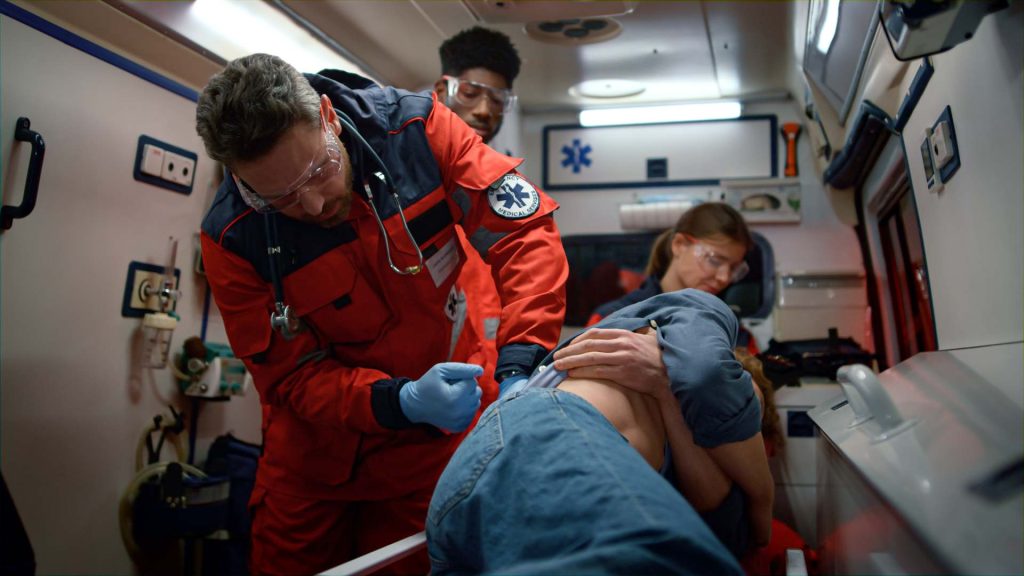Injuries caused by car accidents vary as much as the types of crashes that occur. Your car’s position at the point of impact, how you were hit, and whether your seat belt was one (please, always wear a seat belt!) are all factors in how your body will react to the impact from a collision.
Common Car Accident Injuries
Even if an accident seems minor, there is still a chance of injury. In the days and weeks after a car accident, carefully monitor how your body and mind feel, some symptoms do not show up right away.
Whiplash
When a car stops or turns suddenly, the neck quickly “whips” back and forth, causing whiplash. One of the more common injuries from a car accident, whiplash causes injury to the muscles and tendons in your neck, which can be quite painful.
If you’re experiencing symptoms like neck pain, stiffness, lack of range of motion or worsening pain when you move, consult an AICA orthopedic doctor. Your physician will determine whether your case of whiplash will heal over time or if you need additional care.
Concussion
Concussions can also occur from your head being jostled back and forth, your head does not need to hit anything for there to be a serious injury. Some symptoms might appear right away like headache, pressure in the head, temporary loss of consciousness, “seeing stars”, dizziness or ringing in the ears.
However, it can sometimes take a few hours for these signs to emerge. If you are having trouble concentrating, focusing or with your memory, consult an AICA Orthopedic doctor for a neurological evaluation, it could be a significant concussion.
Bone Fractures
The blunt force or compression of a crash can cause broken bones. Although any bone can break in an crash, the most frequent are the extremities: hands, arms, feet, and legs.
The force of the impact, especially in a rear-end accident, can cause the bones in the driver’s arms, wrists or hand to break, depending on how they are holding the steering wheel. Swelling, redness, bruising, deformity, loss of function and severe pain are all signs of a broken bone.
An AICA orthopedic doctor will diagnose the severity of the break and prescribe the best treatment.
Musculoskeletal Injuries
Aside from injury to the neck and shoulders from whiplash, there is also risk of musculoskeletal injury to ligaments, tendons and nerves in places your body was stretched, compressed or bent in the accident.
These can be as painful as they can hinder your ability to perform simple tasks, depending on the severity. If you’re experiencing pain that increases with activity, redness and swelling, these could be signs of soft-tissue injury. Consult an AICA Orthopedic physician to avoid long-term damage.
Emotional Injuries
While physical injuries can be easy to see or feel, emotional injuries originating from a car accident merit just as much professional treatment. It is common to experience emotional reactions, like anxiety or depression, due to the release and then withdrawal of adrenaline during an accident.
However, these should dissipate within a short period. If you continue to feel anxious, repeatedly “relive” the accident, or avoid the crash site after a few weeks, you should contact an Atlanta orthopedic doctor that specializes in car accident injuries and trauma.





